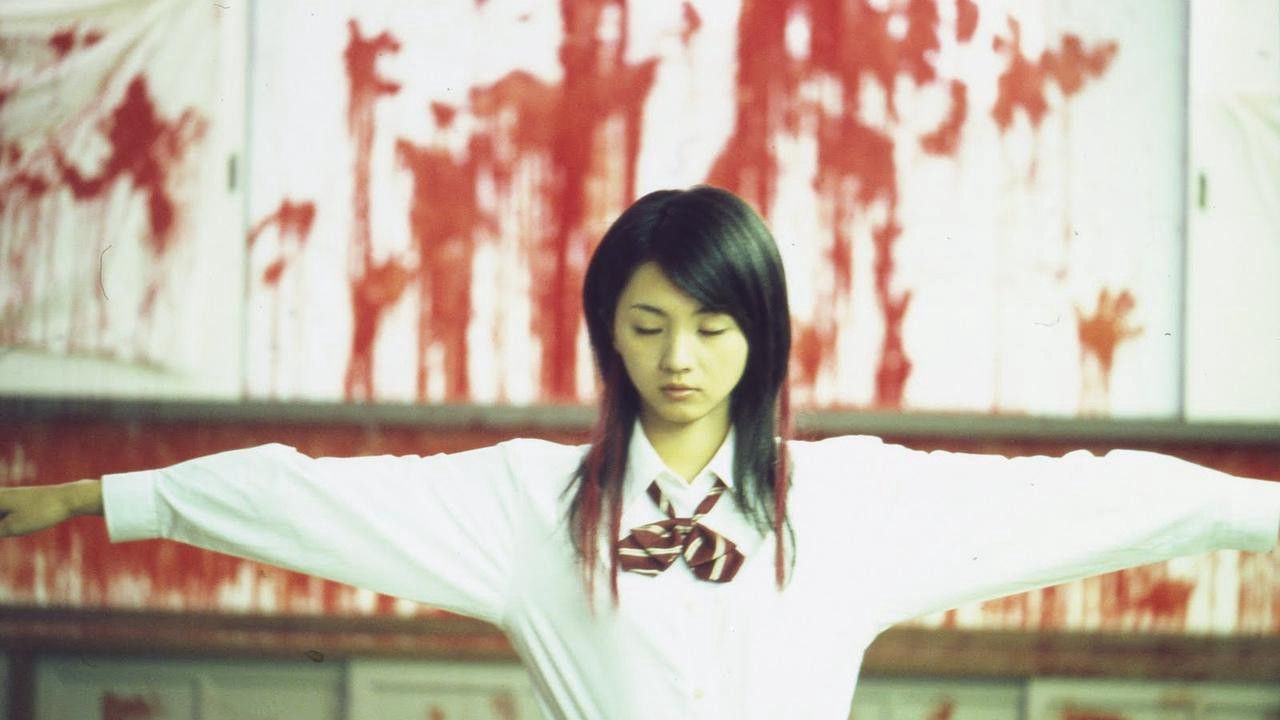Love Exposure (Sono Sion, 2008)

‘Over the Mountains
Of the Moon,
Down the Valley of the Shadow,
Ride, boldly ride,’
The shade replied, —
‘If you seek for Eldorado!’
Love Exposure is an epic four-hour romantic comedy about terrible fathers, upskirt photography, Catholicism, and the meaning of love. Where Bicycle Sighs was a fairly typical minimalist art film and Suicide Club was firmly entrenched in the millennial wave of Japanese horror cinema, Love Exposure seems to come out of nowhere, a wholly original pop construct burst forth from a cracked heart. If it has a stylistic precursor, it’s in the freewheeling exuberance of 70s exploitation films, the camera rushing in and out of handheld frames, mass karate fights and arterial sprays likely to spring to life at any moment, a lurid glee taken in the cinema’s simulacra of violence. Resting uneasily alongside the slashed throats and broken members, however, is a fundamentally sweet story of young love among the highly damaged, the story of a generation inventing romance on its own terms after their fathers, with their selfish cruelty, have very nearly drained life of all potential meaning.
The four-hour plot has too many twists and turns to coherently recount, but it revolves around Yu (Nishijima Takahiro) a young Catholic whose father, a priest, drives him into first a gang and then into the secret art of taking panty pictures. Yu’s ideal woman is Yoko (Mitsushima Hikari), who leaves her abusive father to live with Kaori, the woman Yu’s father loves but for whom he can’t quite leave the priesthood. Skulking around them is Koike (Andô Sakura), another victim of an abusive father, but a murderous, drug-dealing one, who also runs a cult church, based on Christianity but with a lot more kidnapping. Yu loves Yoko, Koike maybe loves Yu, Yoko loves Miss Scorpion, whom she doesn’t know is actually Yu in drag.
The film’s off-beat construction, an hour long first chapter, followed by two 20–30 minute ones, then a 90 minute fourth chapter followed by a long epilogue, mirrors its winding narrative, unexpected rhythms in a story the direction of which is mostly unpredictable. In tone, it resembles something like Hal Hartley’s Henry Fool movies in creating a world dialed ever so slightly out of step with our own reality, but recognizable nonetheless. It’s a film that brings out the funkiness in Bolero and the Second Movement of Beethoven’s Seventh Symphony, letting both tunes linger for eternities in the background, while panty photos are taken with kung fu acrobatics, propelling the narrative forward for longer than any sane human would think advisable. It’s a film where the Catholic Church is corrupt, ineffective, and cruel, while its rival Zero Church brainwashes its victims into a white-walled fantasy of domestic happiness, yet the purest expression of meaning is an angry, anguished recitation of Corinthians 13. In that famous passage is the core of romance our heroes carve out for themselves: after burning down every institution that corrupts and obscures, the clanging cymbals of selfish desire, after exposing all their own deceptions and disguises and imperfections, two hands clasp with faith, hope, and love.
